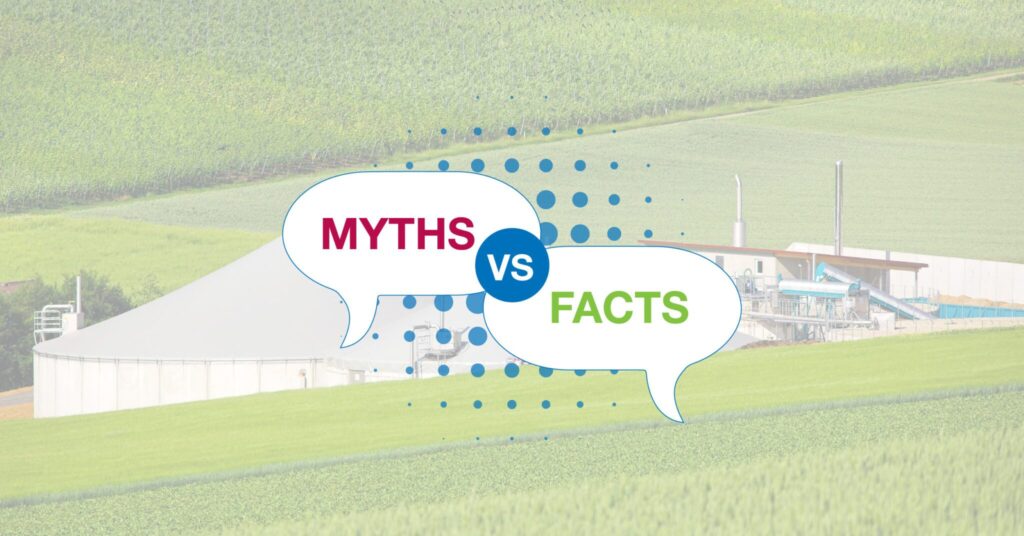Biomethane: Myths vs Facts
Biomethane, also known as renewable natural gas (RNG) or green gas, is gaining attention as a sustainable alternative to traditional natural gas. However, misconceptions about biomethane persist. Let’s debunk some common myths and present the facts:
Myth 1: Biomethane is the Same as Conventional Natural Gas.
Fact: While both biomethane and conventional natural gas consist mainly of methane, they differ in their sources and environmental impacts. Biomethane is produced from organic waste materials such as agricultural residues, food waste, and wastewater, making it a renewable energy source. In contrast, conventional natural gas is extracted from fossil fuel reserves and contributes to greenhouse gas emissions when burned.
Myth 2: Biomethane is Expensive and Inaccessible.
Fact: While initial investment costs for biomethane production facilities can be significant, the long-term benefits often outweigh the expenses. Biomethane can be produced at various scales, from small-scale digesters on farms to large-scale anaerobic digestion plants, making it accessible to a wide range of users. Moreover, advancements in technology and supportive policies are driving down costs and expanding the availability of biomethane.
Myth 3: Biomethane Production Competes with Food Production.
Fact: Biomethane production primarily utilizes organic waste materials that are not suitable for human consumption, such as crop residues, food scraps, and manure. These feedstocks are often considered waste products or byproducts of agricultural and industrial processes. By converting organic waste into biomethane, we can reduce landfill pollution, minimize methane emissions, and create renewable energy without competing with food production.
Myth 4: Biomethane is Not Environmentally Friendly.
Fact: Biomethane offers significant environmental benefits compared to conventional fossil fuels. When produced from organic waste materials, biomethane helps mitigate greenhouse gas emissions by capturing methane that would otherwise be released into the atmosphere. Biomethane production also reduces reliance on non-renewable resources, minimizes air and water pollution, and supports sustainable waste management practices.
Myth 5: Biomethane is Not Reliable or Scalable.
Fact: Biomethane production technologies, such as anaerobic digestion and thermal gasification, are well-established and proven at various scales. These technologies can be deployed in a decentralized manner, allowing biomethane production to be tailored to local conditions and resource availability. Additionally, biomethane can be integrated into existing natural gas infrastructure, making it a reliable and scalable solution for meeting energy demands



